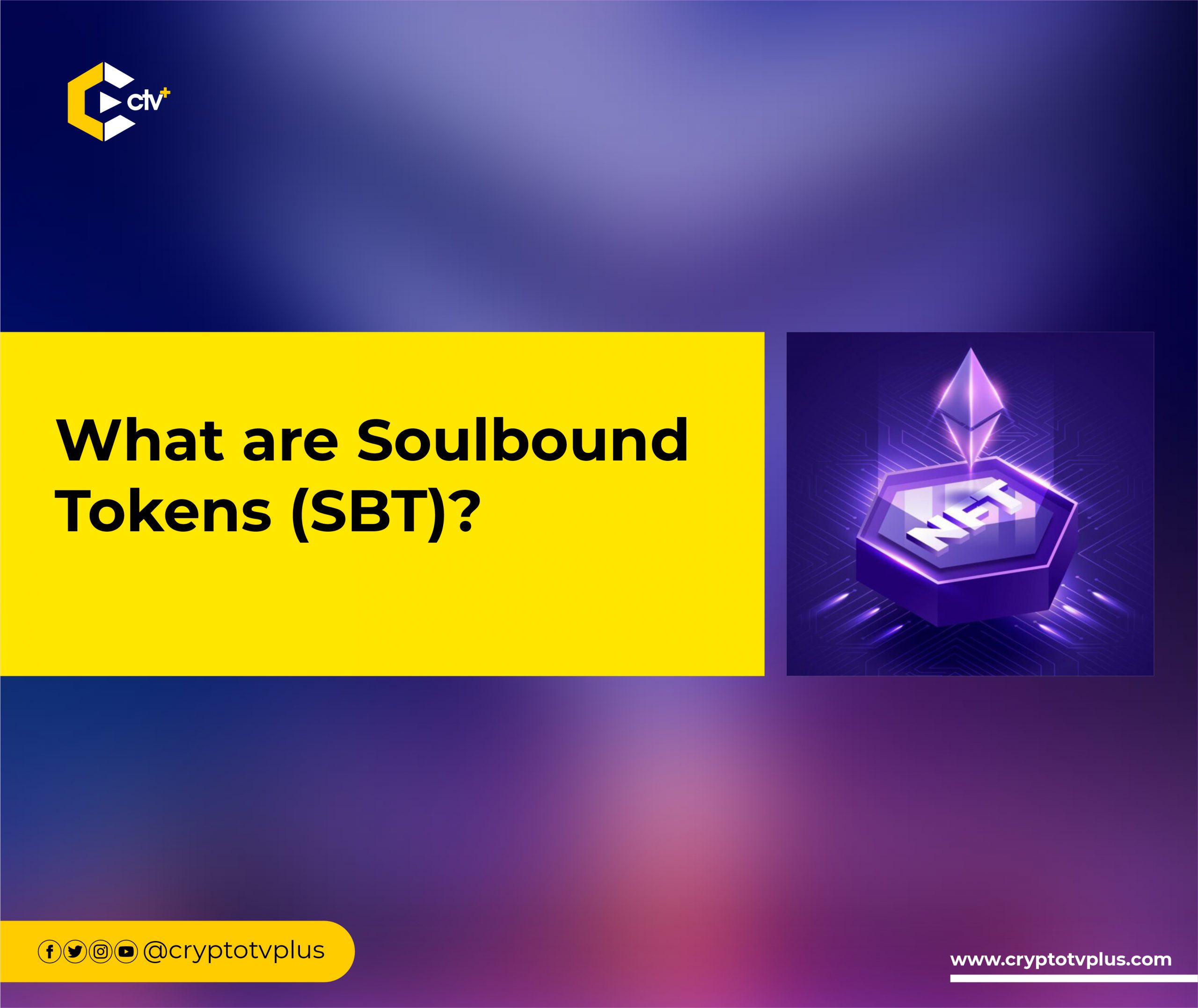Education
What are Soulbound Tokens (SBT)?

NFTs are great. You can buy and flip for profits, or loss. There has been a buzz, here and there about Soulbound tokens (SBTs) and this has put a lot of questions. Questions such as is SBT the new big thing? What can it be used for?
The idea of soulbound Tokens was put forth in May 2022 by E. Glen Weyl, an economist, and Vitalik Buterin, the co-founder of Ethereum. The whitepaper outlines how Soulbound tokens (SBTs) can serve as the credentials we use daily and the principles of a fully decentralized society (DeSoc) governed by its people.
What are Soulbound Tokens?
Soulbound tokens are non-transferable digital tokens that can be used to reflect the characteristics, accomplishments, and historical data of a person or other entity. In contrast to NFTs as commonly known, and fungible tokens, which can be exchanged publicly and moved from one wallet to another, Soulbound tokens, as their name suggests, are firmly tied to a wallet. The concept of “non-transferable” tokens might seem off as they cannot be traded like the regular NFTs. People trade NFTs for profits, safe keeps, and even some, for bragging rights so why is SBT not transferable?
SBT can serve as a representation of ownership over tangible or digital things. The authors of the whitepaper, Glen Weyl, Puja Ohlhaver, and Vitalik Buterin, presented the concept of SBTs as a method to “encode social relationships of trust” and to represent the commitments, qualifications, and affiliations of “Souls” that can encode the real-world trust networks to establish authenticity.
How does Soulbound Token SBT work?
First, let’s begin with the term “Souls”
A SOUL is a blockchain wallet that stores publicly accessible, non-transferable tokens, and the tokens it stores are called “Soulbound Tokens” (SBT). Think of SOUL as a typical wallet that contains a driver’s license, proof of attendance, and degree certificate, except that this information will be kept or stored in a digital token using SBT. Souls can certify their own SBTs. On the blockchain, the SBT, its issuer, and Soul’s address are all publicly verifiable. Therefore, anyone can quickly discover or demonstrate the trust circles of a specific Soul.
Why SBT?
In a society filled with distrust and lack of confidence, soulbound tokens will be of great help as they may aid the establishment of provenance and reputation, therefore resolving the issue of trust in Web3. Notably, Souls and SBTs will also serve as the foundation for a decentralized society in which social interactions and human relationships play an important role in the formation of Web3 identities, and social economy. SBT can serve as a representation of ownership over tangible or digital things. SBTs can be used to show membership, affiliations or credentials. Soul, the digital wallet that holds SBTs could stand like your CV in the real world where anyone could have access to your professional and life skills, potentials or even the benefits you could bring to a company.
Applications of soulbound tokens
Souls can be used to build trust, affiliations or legitimacy without revealing your identity. There are many interesting applications for SBT.
- Proof of attendance: In keeping with the POAP example, a company is employing individuals who attended conference Z. Because conference Z provided SBT to its attendees, the company can screen applicants for actual conference attendance.
- Education: Universities can award graduates a degree as SBT and the owners cannot sell or transfer this degree. A training provider can also issue SBT to demonstrate a student’s attendance at a course.
- NFTart: SBT can weed out dishonest individuals who utilize well-known artists’ names to sell NFT collections. Artists have the option of selling NFTs from their soul. Buyers would find it simpler to recognize the soul as belonging to that artist and, in turn, confirm the legitimacy of the NFT and the more SBTs the artist’s Soul has.
- Governance: DeFi protocols awards early adopters that believe in and support their project airdrop tokens. Giving SBT to early users guarantees control will stay in the hands of users who genuinely care about the protocol.
- Digital Verification/ Documentation: SBT offers countless opportunities. On the blockchain, a driver’s license might be issued as SBT.
- Uncollateralized Lending:SBT may be used to demonstrate lending credit. When you repay a loan represented by an SBT for instance, the issuer reissues the SBT and sends you a proof of payment SBT. By doing so, you can demonstrate your creditworthiness in the DeFi space and possibly engage in uncollateralized lending (AAVE/Compound).
- Digital CV: SBT can be utilized on web 3 platforms as a digital CV. SBT can be utilized to reflect skills and abilities when added to a Soul because they can be used as proof of presence and digital verification. It enables having a web3 CV without disclosing identity while retaining social credibility.
Final thoughts
The concept of Soul and SBT sounds promising but what about if you lost the keys to your Soul? Does that mean your SBT is lost forever? There is, however, a suggested fix known as “community wallet recovery” based on the white paper. Members of the soul community can assist in recovering the keys. SBT is an interesting innovation with varied applications in crypto and outside crypto.
Read also;
- What is Real Yield?
- How to Survive in a Bear Market
- EOS hard fork: What you should know about Antelope
What do you think of this article? Share your comments below.













Pingback: What are Soulbound Tokens (SBT)? by Olawumi Oloyede – CryptoTvplus Events: NFT, DeFi, Bitcoin, Ethereum, Altcoin Events
Pingback: What are Soulbound Tokens (SBT)? - Nft News Prime